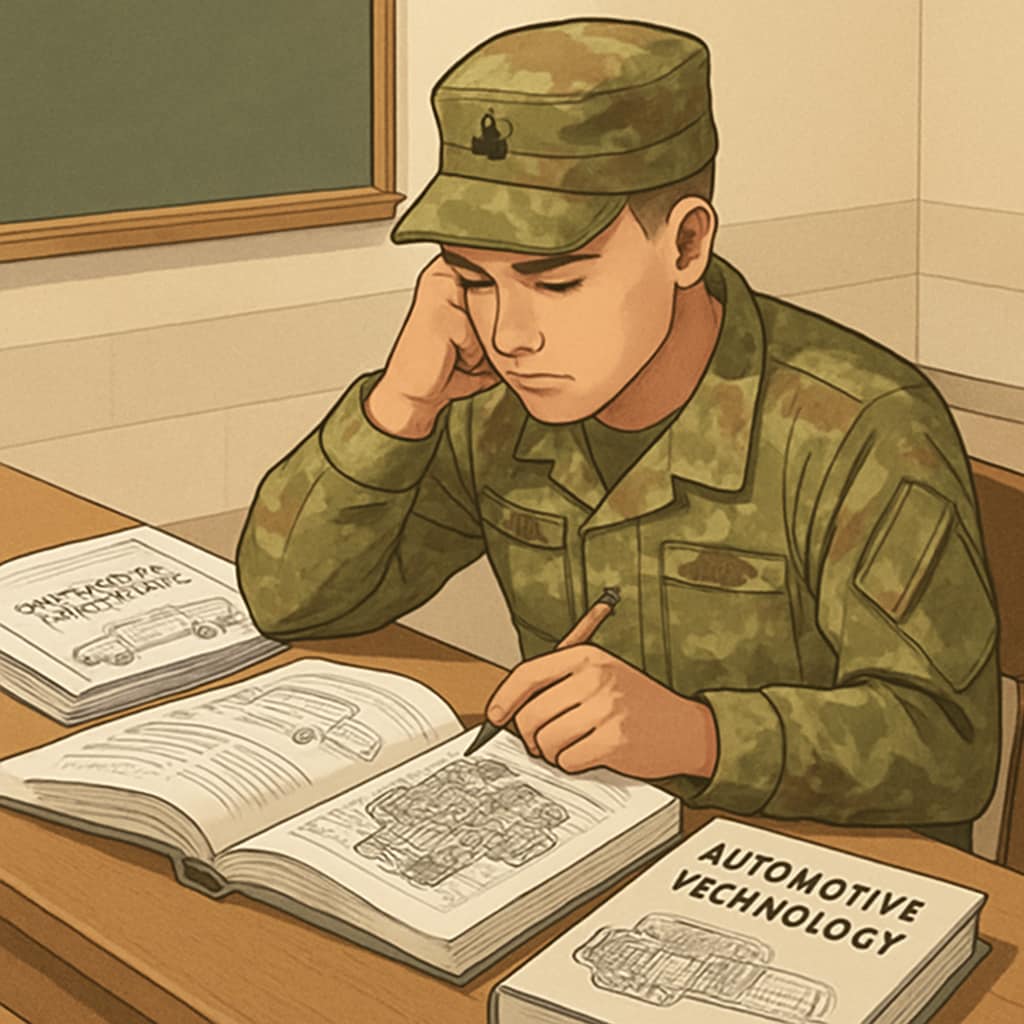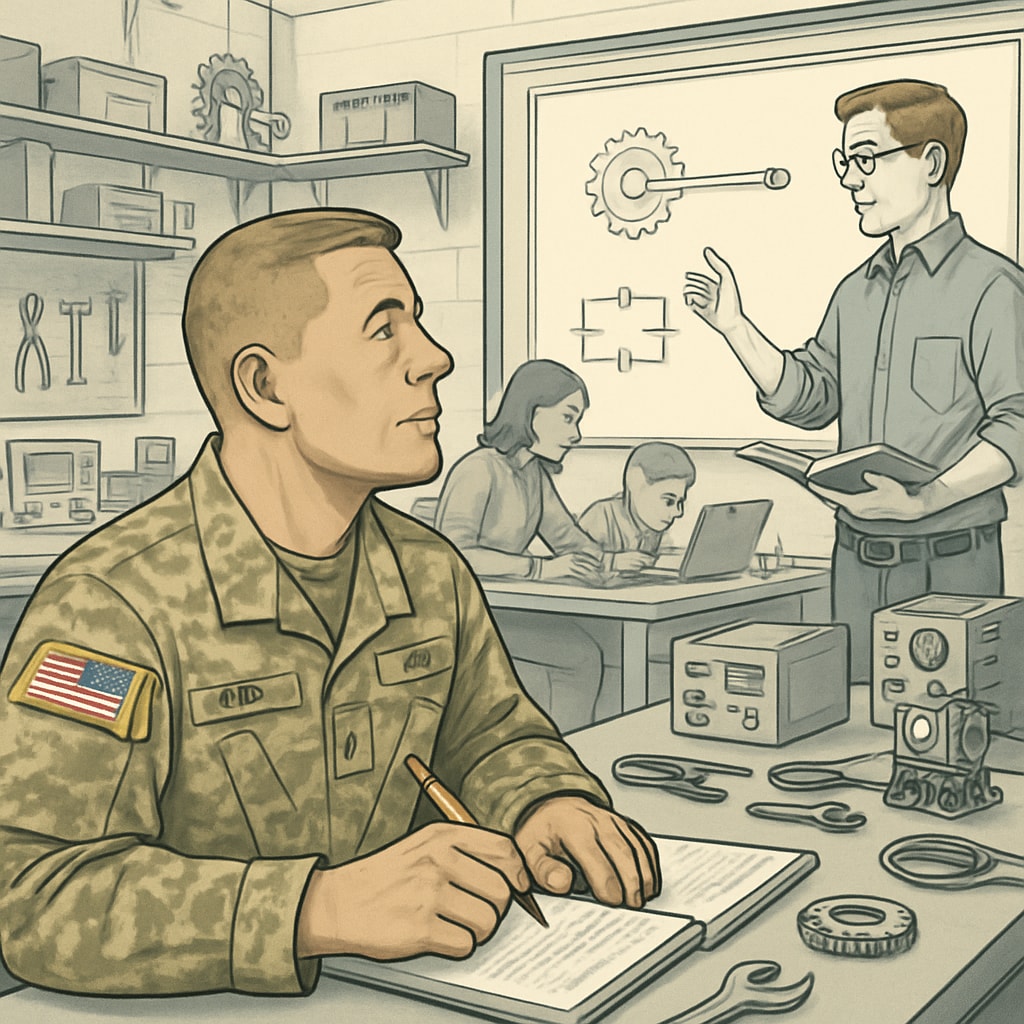For military personnel holding an associate degree in automotive technology, pursuing a bachelor’s degree can be a valuable step toward career advancement. By leveraging existing academic credits, service members can reduce the time and cost required to earn a higher degree. This article explores the key considerations for credit transfer, highlights compatible bachelor’s degree programs, and offers tips for maximizing your prior education to achieve your professional goals.

Navigating Credit Transfer: Key Factors to Consider
One of the most critical aspects of transitioning from an associate degree to a bachelor’s degree is understanding how academic credits can transfer. Credit transfer policies vary across institutions, but many schools offer pathways specifically designed for military personnel. These pathways often recognize both academic coursework and military training as eligible for credit.
Here are some steps to ensure a smooth credit transfer process:
- Review articulation agreements: Many colleges have partnerships with community colleges or trade schools, outlining which credits will transfer directly into their bachelor’s programs.
- Utilize military education benefits: Programs such as the GI Bill or Tuition Assistance can also help cover costs while streamlining the credit review process.
- Request a Joint Services Transcript (JST): This document provides a detailed record of military training and experience, which can often be evaluated for academic credit.
By carefully planning your transfer process, you can avoid repeating coursework and focus on completing your degree efficiently.
Top Bachelor’s Degree Options for Automotive Technology Graduates
Choosing the right bachelor’s degree program is essential for aligning with your career ambitions. Fortunately, an associate degree in automotive technology provides a solid foundation for several related fields. Below are some of the most compatible bachelor’s degree options:
- Automotive Engineering Technology: This program builds on technical skills by introducing advanced concepts in vehicle design, manufacturing, and testing.
- Business Administration: Ideal for those aiming to manage or own an automotive repair business, this degree focuses on leadership, finance, and operations management.
- Industrial Technology: This interdisciplinary field emphasizes process improvement, quality control, and technical problem-solving, making it a natural progression for automotive technicians.
- Mechanical Engineering: While more math-intensive, this degree opens doors to careers in advanced automotive design and innovation.
Each of these options offers unique advantages depending on your long-term goals, whether they involve hands-on technical work, business management, or engineering innovation.

Maximizing Your Military Education and Experience
One of the greatest advantages military personnel have is the ability to leverage their unique skills and experiences when pursuing higher education. Many colleges and universities recognize the value of military training, which often translates to leadership, discipline, and technical expertise.
To make the most of your background, consider the following strategies:
- Choose a military-friendly school: Look for institutions that offer dedicated support services, such as academic advisors who specialize in assisting veterans.
- Explore Prior Learning Assessments (PLAs): Some schools allow you to earn academic credit for professional experience and certifications.
- Network with veteran alumni: Connecting with other military graduates can provide valuable insights into navigating academic and career transitions.
By taking advantage of these resources, you can ensure that your military service contributes meaningfully to your academic and professional journey.
Conclusion: Charting Your Path to Success
Transitioning from an associate degree in automotive technology to a bachelor’s degree is a strategic move that can unlock new career opportunities. By understanding credit transfer policies, selecting a compatible degree program, and leveraging your military background, you can achieve your educational and professional goals more efficiently. With careful planning, this journey can be both rewarding and transformative.
For more information on credit transfer and military education benefits, visit trusted resources such as the U.S. Department of Veterans Affairs Education Benefits page or the ACE Military Guide.
Readability guidance: This article maintains short paragraphs and includes lists to improve readability. Key concepts are introduced in a clear and structured manner, ensuring accessibility for readers with varied levels of expertise.


